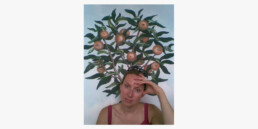A guest blog by Abigail Gray.
In my second year of Deputy Headship, on the first day of the Easter Holidays, I found a lump in my daughter’s left thigh. She was 4 years old. In the days that followed, after a succession of hospital visits, scans and a biopsy we would discover that it was malignant.
I was sitting on my bed at home when I took the consultants call. I watched my reflection change in the wardrobe mirror as he spoke. It was one of those grey days in Spring, the sky had been threatening rain all morning. I remember looking around the room and feeling complete confusion, how could everything look the same and be so different?
I’d love to say that what happened next was a blur but it’s not. The memories are chiselled into me. From the moment I put down the phone I experienced a kind of separation, two parallel reactions: one internal and one external. She was in the next room recovering from the operation. I had to get on with the day, dress her, make lunch, we had to get to the hospital and of course I’d have to call her father and then my parents to break the news. I chose to swallow the shock, my tears and save the anguish until later.
Growing up in Bermondsey had taught me that there were few qualities prized more highly than resilience and discretion, especially amongst women. My grandmother was the wife of a docker who raised 6 children in a council flat; she survived war, poverty and breast cancer. She was a stoic, with beautifully set hair and quiet authority. The astonishing women who raised me endured their generous helping of suffering in quiet dignity. How could I be any different?
At work I’d witnessed desperate things. I’d worked with terminally ill children, children abused and abusers, children looked after who most certainly had not been ‘looked after’, children who had slipped through all the massive holes in all the nets to find themselves without options, hope or indeed literacy. Consequently, I found almost no space for my own anger or grief about my daughter’s illness. I couldn’t let myself feel it. I couldn’t ask for help. In fact, I used my work to avoid it.
Not for the first time, as work had long been a refuge from the acute anxiety that had plagued me from infancy. It was easy to translate this into a positive, this ‘work ethic’ had taken me from TA to Deputy Headship in less than 10 years. There were so many great names for it. People talked about my passion & drive, my focus & commitment. The fact was work was my Prozac. It was my salvation. Not the kind of salvation that comes in a haze of warm light and brings peace but the kind that keeps you fighting another day, crawling along, like the last zombie in the movie.
I found the daunting thing about childhood cancer was not just finding a way through the actual illness but finding a way to live in the spaces between. Watching and waiting was such a big part of those early years. Every childhood scrape and illness promoted a deep-seated anxiety in me. In those moments, I often felt completely alone and crushed by the responsibility. I don’t think I realised how much energy it took to reconcile my love of being a mum and the ever present, doom-laden presence of ‘the cancer’.
As my blood pressure started to rise, I took the medication and changed nothing. I buried myself in work all day. In the evening I’d be with my daughter, lay next to her each night and stroke her head until she was asleep. Afterwards, I’d pour myself a pretty huge glass of wine, cry and write.
I actually wanted the people around me to think I was coping. I was convinced that the satisfaction of doing right by them would ultimately sustain me. I believed that I’d make it to the other side. When, in fact, there was no other side.
10 years later I hit the wall with literally nothing left in the tank. Shredded, sleepless and exhausted while being paid the highest salary of my life in a job I thought I loved. The realisation was sudden, like looking up from your book on a train journey and realising you missed your stop. What else is there to do but get off?
It wasn’t therapy that helped me, it was habit change. I was forced to acknowledge my needs and attend to them. More than anything, I just needed to sleep. After that I took the revolutionary step of describing what I wanted my life to look like. Then it was just planning how to get there. Personal and professional goals intertwined for the first time.
I realise now that there are different kinds of courage. Just because you have one kind doesn’t mean you have another. I was afraid to imagine what I really wanted, to listen to myself, to say no, to ask for help. It’s my daily challenge, a habit that I practice. Like Adriene Mishler says at the beginning of her yoga classes, ‘The hardest part is showing up.’
Postscript
I’m very happy to report that my daughter is now 23 and overseas, embarking on the next exciting stage of her life. I am deeply and daily grateful to be her mum. She is phenomenal. We are, of course, forever indebted to the wonderful doctors and nurses at both Guy’s and The Royal Marsden Hospitals.
My heart goes out to all the mums and dads that face into this struggle, I wish you all the love and strength in the world.


